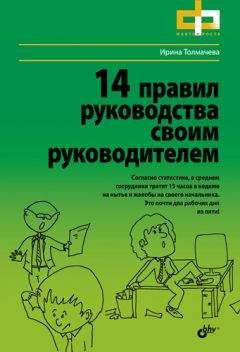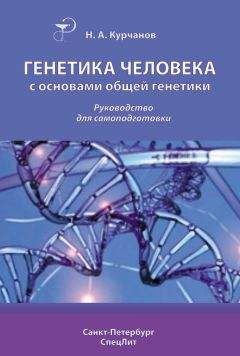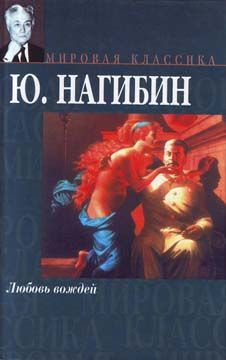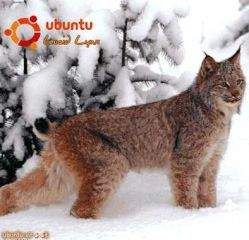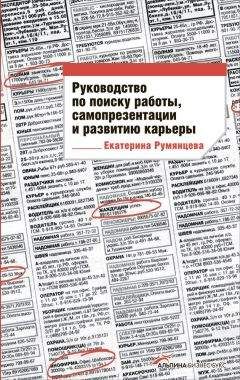Ольга Ламонова - Английский язык. Ирландские волшебные сказки / Irish Fairy Tales
“I,” said the cowboy; “and if your pet had had manners (и если бы твой питомец умел себя вести: «имел бы хорошие манеры»; manner – метод, способ, образ действия; воспитанность, хорошие манеры), he might be alive now (он мог бы быть сейчас жив).”
“Who has dared to interfere with my fighting pet?” screamed he.
“I,” said the cowboy; “and if your pet had had manners, he might be alive now.”
The cowboy and the Gruagach stood by the fire (пастух и Груагах остановились у огня; to stand /stood/). A stork was boiling in the pot (в котле варился аист; to boil – кипятить; варить), as when the Gruagach came the first time (как и тогда, когда Груагах пришел в первый раз). The master of the house went into the next room (хозяин дома пошел в соседнюю комнату; next – следующий; ближайший, соседний) and brought out an iron and a wooden pike (и вынес железную и деревянную пики), and asked the cowboy which would he choose (и спросил пастуха, какую /пику/ он выберет).
“I’ll take the wooden one (я возьму деревянную),” said the cowboy; “and you may keep the iron one for yourself (и можешь оставить железную для себя; to keep – держать; хранить, сохранять).”
The cowboy and the Gruagach stood by the fire. A stork was boiling in the pot, as when the Gruagach came the first time. The master of the house went into the next room and brought out an iron and a wooden pike, and asked the cowboy which would he choose.
“I’ll take the wooden one,” said the cowboy; “and you may keep the iron one for yourself.”
So he took the wooden one (итак, он взял деревянную пику); and going to the pot (и, подойдя к котлу), brought out on the pike all the stork except a small bite (вытащил на пике всего аиста /целиком/, за исключением маленького кусочка; to bring /brought/), and he and the Gruagach fell to eating (и он с Груагахом приступили к еде; to fall /fell, fallen/ – падать; to fall to doing smth. – браться, приниматься за что-л., начинать делать что-л.), and they were eating the flesh of the stork all night (и они ели мясо аиста всю ночь; flesh – плоть, тело; мясо, мясная пища). The cowboy and the Gruagach were at home in the place that time (пастух и Груагах были = чувствовали себя как дома в этом месте на этот раз; home – дом; at home – дома; time – время; раз, случай).
So he took the wooden one; and going to the pot, brought out on the pike all the stork except a small bite, and he and the Gruagach fell to eating, and they were eating the flesh of the stork all night. The cowboy and the Gruagach were at home in the place that time.
In the morning the master of the house went into the next room (поутру хозяин дома пошел в соседнюю комнату), took down the twelve iron loops with a wooden one (снял /со стены/ двенадцать железных петель и одну деревянную: «с одной деревянной»), brought them out (вынес их; to bring /brought/), and asked the cowboy which would he take (и спросил пастуха, какие он возьмет), the twelve iron or the one wooden loop (двенадцать железных или одну деревянную петлю).
“What could I do with the twelve iron ones for myself or my master (что я мог бы сделать с двенадцатью петлями для себя или для своего господина)? I’ll take the wooden one (я возьму деревянную).”
In the morning the master of the house went into the next room, took down the twelve iron loops with a wooden one, brought them out, and asked the cowboy which would he take, the twelve iron or the one wooden loop.
“What could I do with the twelve iron ones for myself or my master? I’ll take the wooden one.”
He put it on (он надел ее на себя), and taking the twelve iron loops (и, взяв двенадцать железных петель), put them on the necks of the twelve daughters of the house (надел их на шеи двенадцати дочерей /хозяина/ дома), then snapped the twelve heads off them (затем оторвал двенадцать голов с их /плеч/; to snap – хватать, цапнуть, укусить /о собаке/; ломать или рвать /с треском/), and turning to their father, said (и, повернувшись к их отцу, сказал), “I’ll do the same thing to you (я сделаю то же самое с тобой; thing – вещь, предмет; действие, поступок) unless you bring the twelve sons of my master to life (если только ты /не/ оживишь двенадцать сыновей моего хозяина: «не приведешь двенадцать сыновей моего хозяина к жизни»; to bring – приносить; приводить в какое-л. состояние, доводить до чего-л.), and make them as well and strong (и /не/ сделаешь их такими же здоровыми и сильными) as when you took their heads (/какими они были,/ когда ты их убил: «забрал их головы»).”
He put it on, and taking the twelve iron loops, put them on the necks of the twelve daughters of the house, then snapped the twelve heads off them, and turning to their father, said, “I’ll do the same thing to you unless you bring the twelve sons of my master to life, and make them as well and strong as when you took their heads.”
The master of the house went out (хозяин дома вышел) and brought the twelve to life again (и оживил всех двенадцать /сыновей/: «вернул двенадцать к жизни снова»); and when the Gruagach saw all his sons alive and as well as ever (а когда Груагах увидел, что все его сыновья живы и здоровы, как и прежде; to see /saw, seen/), he let a laugh out of himself (он рассмеялся: «испустил из себя смех»; to let – позволять; to let out – выпускать), and all the Eastern world heard the laugh (и весь восточный мир слышал этот смех; to hear /heard/).
The master of the house went out and brought the twelve to life again; and when the Gruagach saw all his sons alive and as well as ever, he let a laugh out of himself, and all the Eastern world heard the laugh.
Then the cowboy said to the Gruagach (тогда пастух сказал Груагаху), “It’s a bad thing you have done to me (ты плохо поступил со мной: «это плохой поступок, который ты сделал мне»), for the daughter of the king of Erin will be married the day (поскольку дочь короля Ирландии будет отдана замуж в день) after your laugh is heard (после того, как будет услышан твой смех).”
Then the cowboy said to the Gruagach: “It’s a bad thing you have done to me, for the daughter of the king of Erin will be married the day after your laugh is heard.”
“Oh! then we must be there in time (мы должны быть там = попасть туда вовремя),” said the Gruagach; and they all made away from the place (и все они отправились прочь из того места; to make away – убежать, улизнуть) as fast as ever they could (так быстро, как они только могли), the cowboy (пастух), the Gruagach (Груагах), and his twelve sons (и его двенадцать сыновей).
“Oh! then we must be there in time,” said the Gruagach; and they all made away from the place as fast as ever they could, the cowboy, the Gruagach, and his twelve sons.
On the road they came to a woman (на дороге они встретили одну женщину: «подошли к какой-то женщине») who was crying very hard (которая очень сильно плакала; hard – жесткий; энергично, активно, упорно; очень, чрезвычайно, чрезмерно).
“What is your trouble (что у вас за беда; trouble – беспокойство, волнение, тревога; неприятность, беда, горе)?” asked the cowboy.
“You need have no care (не беспокойтесь об этом: «вам не нужно иметь никакой тревоги»; care – забота, попечение; заботы, тревога, треволнение),” said she, “for I will not tell you (потому что я вам /все равно/ не скажу).”
“You must tell me (вы должны сказать мне),” said he, “for I’ll help you out of it (потому что я помогу вам в вашей беде: «из нее»; out of – из /наружу/).”
On the road they came to a woman who was crying very hard.
“What is your trouble?” asked the cowboy.
“You need have no care,” said she, “for I will not tell you.”
“You must tell me,” said he, “for I’ll help you out of it.”
“Well (ну),” said the woman, “I have three sons (у меня есть три сына), and they used to play hurley (и они обычно играли в /ирландский/ хоккей на траве) with the three sons of the king of the Sasenach [English] (с тремя сыновьями короля Sasenach [англичан]), and they were more than a match for the king’s sons (и они были достойными соперниками королевичам: «они были более чем равными по силами противниками сыновьям короля»; match – человек, подходящий под пару, ровня; равный по силам противник, соперник).
“Well,” said the woman, “I have three sons, and they used to play hurley with the three sons of the king of the Sasenach [English], and they were more than a match for the king’s sons.
And it was the rule (и правилом было то = и по правилам) that the winning side should give three wallops of their hurleys to the other side (что победившая команда должна была дать = нанести три сильных удара своими хоккейными клюшками другой = проигравшей команде; side – бок, сторона; /спорт./ сторона, команда); and my sons were winning every game (и мои сыновья выигрывали каждую игру), and gave such a beating to the king’s sons (и так отлупили сыновей короля; to beat – бить; beating – биение; битье, порка; to give /gave, given/ – давать; to give smb. a good beating – отлупить кого-л.) that they complained to their father (что те пожаловались своему отцу), and the king carried away my sons to London (и король увез моих сыновей в Лондон), and he is going to hang them there today (и он собирается повесить их там сегодня; to hang – вешать, подвешивать; вешать, казнить).”
And it was the rule that the winning side should give three wallops of their hurleys to the other side; and my sons were winning every game, and gave such a beating to the king’s sons that they complained to their father, and the king carried away my sons to London, and he is going to hang them there today.”
“I’ll bring them here this minute (я приведу их сюда сию же минуту),” said the cowboy.
